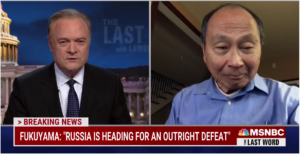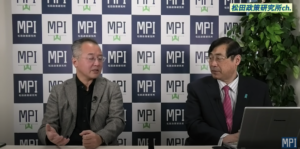YouTubeで流れてきたアメリカ連邦最高裁ブライヤー判事の退任演説がとても印象的だったので原文を書き取ってみました。翻訳はTBSのキャプションをテキスト化したものです。
印象的だった点
- 日本もアメリカも民主主義国家ですが、多様な人種を抱える米国と、大多数が日本人で構成される日本では状況は異なっています。
- 私は米国民主主義については深くは知りませんが、彼らが民主主義を「実験」だと述べていることに感銘を受けました。
- 実験であるからには問題が起こったり失敗をすることもあります。つまりアメリカの民主主義は失敗の可能性を否定していない訳です。
- 翻って日本では政治、行政には無謬性が求められています。もし日本の総理大臣が「これは実験であるが・・・」などと言ったらたちまち総辞職でしょう。
- 失敗を前提としているから思い切って色々なことにチャレンジでき失敗をしてもまたやり直せる国と、失敗をしないことが前提で選ばれ失敗をすると二度と立ち上がれない国ではスタート地点から大きく違います。
- 原文では(民主主義は)idea in principleと述べている通り、アメリカの民主主義は原理原則を理念として打ち立てた上に立っています。
- 日本では原理原則に基づくことと同じくらい、人々の考え方や行動を縛っているものがあります。それは世間と常識です。これらは明文化されたものではないため、空気を恐れて行動が抑制されてしまいます。法律を守ることはもちろん、それだけでは不十分で、世間の常識や空気を読んで考え、行動しなければなりません。
- 日本人は日本を法治国家だと信じていますが、同じくらい人治国家でもあります。
- 現在の日本が抱えている停滞感や閉塞感はこのような失敗を許さない非寛容性にあるのではないでしょうか。
- 最高裁判事の退任会見に大統領が同席していることも注目です。私はこれは三権分立の象徴だと感じました。日本では国民による最高裁判事の審判は可能ですが、やはり政権に選ばれた人物であり、立法、行政と対等な立場ではないように感じられます。
原文
Well, thank you. Thank you, Mr. President. That is terribly nice. And believe me, I hold it right here. It’s wonderful.
And I thought about what I might say to you. And I’d like to say something I enjoy is talking to high school students, grammar school students, college students, even law school students. And they’ll come around and ask me what — what is the — “What is it you find particularly meaningful about your job? What, sort of, gives you a thrill?”
And that’s not such a tough question for me to answer. It’s the same thing day one almost up to day — I don’t know how many.
But the — what I say to them is: Look, I sit there on the bench, and after we hear lots of cases — and after a while, the impression — it takes a while, I have to admit — but the impression you get is, you know — as you well know, this is a complicated country; there are more than 330 million people. And my mother used to say, “It’s every race. It’s every religion.” And she would emphasize this: “And it’s every point of view possible.”
And it’s a kind of miracle when you sit there and see all of those people in front of you — people that are so different in what they think. And yet, they’ve decided to help solve their major differences under law.
And when the students get too cynical, I say, “Go look at what happens in countries that don’t do that.” And that’s there. I take this around at my job. People have come to accept this Constitution, and they’ve come to accept the importance of a rule of law.
And I want to make another point to them. I want to say: Look, of course people don’t agree, but we have a country that is based on human rights, democracy, and so forth.
But I’ll tell you what Lincoln thought, what Washington thought, and what people today still think: It’s an experiment. It’s an experiment. That’s what they said.
And Joanna paid each of our grandchildren a certain amount of money to memorize the Gettysburg Address. And the reason — the reason that — what we want them to pick up there and what I want those students to pick up — if I can remember the first two lines — is that: Four score and seven years ago, our fathers brought — created upon this — here a new country, a country that was dedicated to liberty and “the proposition that all men are created equal,” conceived in liberty — those are his words — and “dedicated to the proposition that all men are created equal.”
He meant women too.
And we are now “engaged in a great civil war” to determine “whether that nation, or any nation so conceived, and so dedicated, can long endure.”
See, those are the words I want to see: “an experiment.” And that’s what he thought. It’s an experiment.
And I found some letters that George Washington wrote where he said the same thing: “It’s an experiment.”
That experiment existed then because even the liberals in Europe, you know, they’re looking over here, and they’re saying, “It’s a great idea in principle, but it’ll never work.”
“But we’ll show them it does.” That’s what Washington thought. And that’s what Lincoln thought. And that’s what people still think today.
And I say, “Oh, I want you…” — and I’m talking to the students now. I say, “I want you to pick just this up: It’s an experiment that’s still going on.”
And I’ll tell you something: You know who will see whether that experiment works? It’s you, my friend. It’s you, Mr. High School Student. It’s you, Mr. College Student. It’s you, Mr. Law School Students.
It’s us, but it’s you. It’s that next generation, and the one after that — my grandchildren and their children. They’ll determine whether the experiment still works.
And, of course, I am an optimist. And I’m pretty sure it will.
Does it surprise you that that’s the thought that comes into my mind today? I don’t know.
But thank you.
日本語訳(TBSのキャプション)
何を話そうかと考えましたが中高生や大学生、法科大学院生にする話をここで話すことにします。
若者達は「あなたの仕事のどこに意義を感じますか?何が面白いですか?」と聞いてきます。それは難しい問題ではないんです。最初の日から今までずっと通算何日かわかりませんけど若者たちに私はこう言うんです。裁判長の席に座っていろんな案件を裁きます。
しばらくするとこんな印象持つようになります。この国はなんて複雑なんだろうと。3億3000万人の人がいて、いろんな人種がいて、いろんな宗教があって、そして考え方も人によって全く違います。そんな中で奇跡だと思うのは考え方が全く違う人がいても法の下でその違いは何とか解決しようと言う決意がそこにはあるんです。「その努力をしない国がどうなっているか見てごらん」と「アメリカ国民はこの合衆国憲法受け入れ法の支配の重要性を受け入れたんですよ」とね。そしてこう言うんです。「もちろんみんな意見が合わないけれどわれわれは人権と民主主義に基づいた国に生きているんだよ」と。
かつてリンカーン大統領が思い、ワシントン大統領が思い、そして今も人々が思っているのはこれは「実験」だと言うことです。実際彼らはそう言ってますからね。妻は孫たちにお小遣いをあげてゲティスバーグ演説を暗記させているんですけれどね。わざわざそうする理由はそこに子供たちや学生たちにぜひ覚えてほしいことが書かれているんですよ。最初の2行はこうです。「87年前、父祖たちは自由の精神に育まれ、人は皆平等だとの心情に捧げられた新しい国家をこの大陸に誕生させた。そして今私たちは重要な内戦を戦っています。これほどに決意し形成してきた国が存続できるのかと言う戦いです。」そこで「実験」と言う言葉のことを思うんです。昔の人も実験だと思ったんですよ。ワシントン大統領は手紙に「これは実験だ」と書き残しています。
この「実験」について昔のヨーロッパのリベラルな人たちは「原理としては良いアイディアだが絶対うまくはいかないよ」と思っていたんですよ。「でもうまくいくことを証明していこう」とワシントンは思いリンカーンも思い同じ思いを抱き、だから学生たちにはこういうんです。「考えてみて。この実験は今も続いているんですよ」と。そして「この実験がうまくいくか見届けるのは誰だい?」と聞くんです。「それはあなたですよ。高校生、大学生、法科大学院生あなたたちなんですよ」と。次の世代そしてその次の世代が見届けるんです。孫たちやその子供たちです。実験がうまくいった日は彼らが見届けるんです。私は楽天家なので必ずうまくいくと確信しています。今日この日にそんなことを思ったのかと驚いたかもしれませんけど、ありがとうございました
















